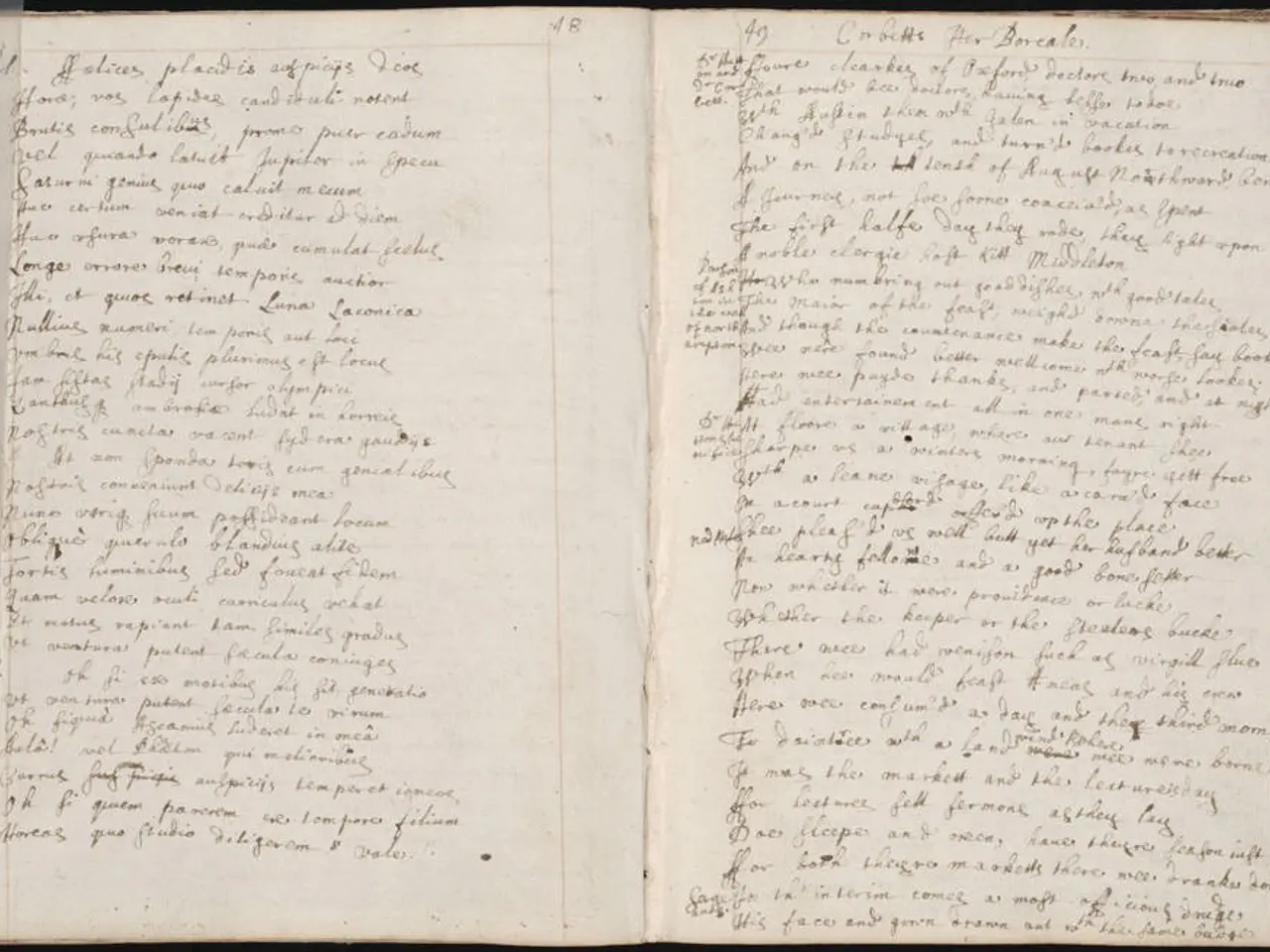Unraveling the Enigma of Composition: Techniques for Students to Develop a Passion for Writing
Writing, a fundamental method for expressing ideas, creating stories, and universal communication, has long been a challenge for many students. One of the key issues they face is a lack of confidence, which can lead to fear of the blank page. However, a new writing program called Mystery Writing is aiming to change this narrative.
Designed by the Discovery Education team, consisting of former educators, Mystery Writing aspires to create a future of confident communicators. By focusing on the mystery genre, which engages readers with suspense, red herrings, twists, and pacing, the program helps students develop their writing skills and find inspiration.
Mystery Writing's goal is to help students overcome their fear of the blank page by demystifying the writing process. The approach to teaching writing in Mystery Writing is through a gradual method, focusing on one genre and culminating in an overall final project. This structure provides students with a clear path to follow, reducing anxiety and fostering a sense of accomplishment.
For teachers, Mystery Writing can enhance efficiency by providing a structured framework that students can follow. The program includes 45-minute lessons at the sentence level for quick completion, allowing teachers to start a lesson in minutes and log into the service easily. Additionally, the lessons are designed to be familiar yet offer different subject matter to maintain writing interest.
Mystery Writing also provides teachers with data and analytics to help them track student progress and adjust their teaching strategies as needed. This feature allows teachers to identify students who may be struggling with writing assignments and provide targeted support.
Practice lessons were created in Mystery Writing to help students continuously work on their writing skills without repetition. The program offers genre units separate from the 45-minute essential skills lessons, providing teachers with flexibility and adaptability to different teaching styles and curriculums.
In an educational context, mystery writing helps improve student confidence in writing because it encourages creativity through constructing intriguing plots, developing characters, and practicing logical thinking to build coherent narratives. This genre demands active problem-solving skills and attention to detail, which motivate students to engage deeply with their writing process and express complex ideas clearly.
In conclusion, Mystery Writing is both a creative outlet and a pedagogical tool that boosts students’ writing confidence while streamlining teachers’ instruction through an engaging, scaffolded genre. By focusing on the mystery genre, the program offers a unique and captivating way for students to develop their writing skills and find inspiration, while providing teachers with a structured framework, data analytics, and flexible resources to enhance their instruction.
Students can use Mystery Writing, a program developed by the Discovery Education team, as a means to overcome their fear of the blank page and increase their writing confidence. By focusing on the mystery genre, this program helps students develop essential writing skills, foster creativity, and find inspiration.
Teachers can benefit from Mystery Writing's structured framework, 45-minute lessons, and data analytics, which allow them to efficiently teach writing while tracking student progress and adjusting teaching strategies accordingly.
The program's approach to teaching writing, through a gradual method and focusing on the mystery genre, helps students engage deeply with their writing process and create captivating narratives that demand active problem-solving and attention to detail.
Mystery Writing provides flexibility by offering separate genre units, allowing teachers to adapt lessons to various teaching styles and curriculums, ultimately aiding in students' education-and-self-development, personal-growth, and overall learning.




